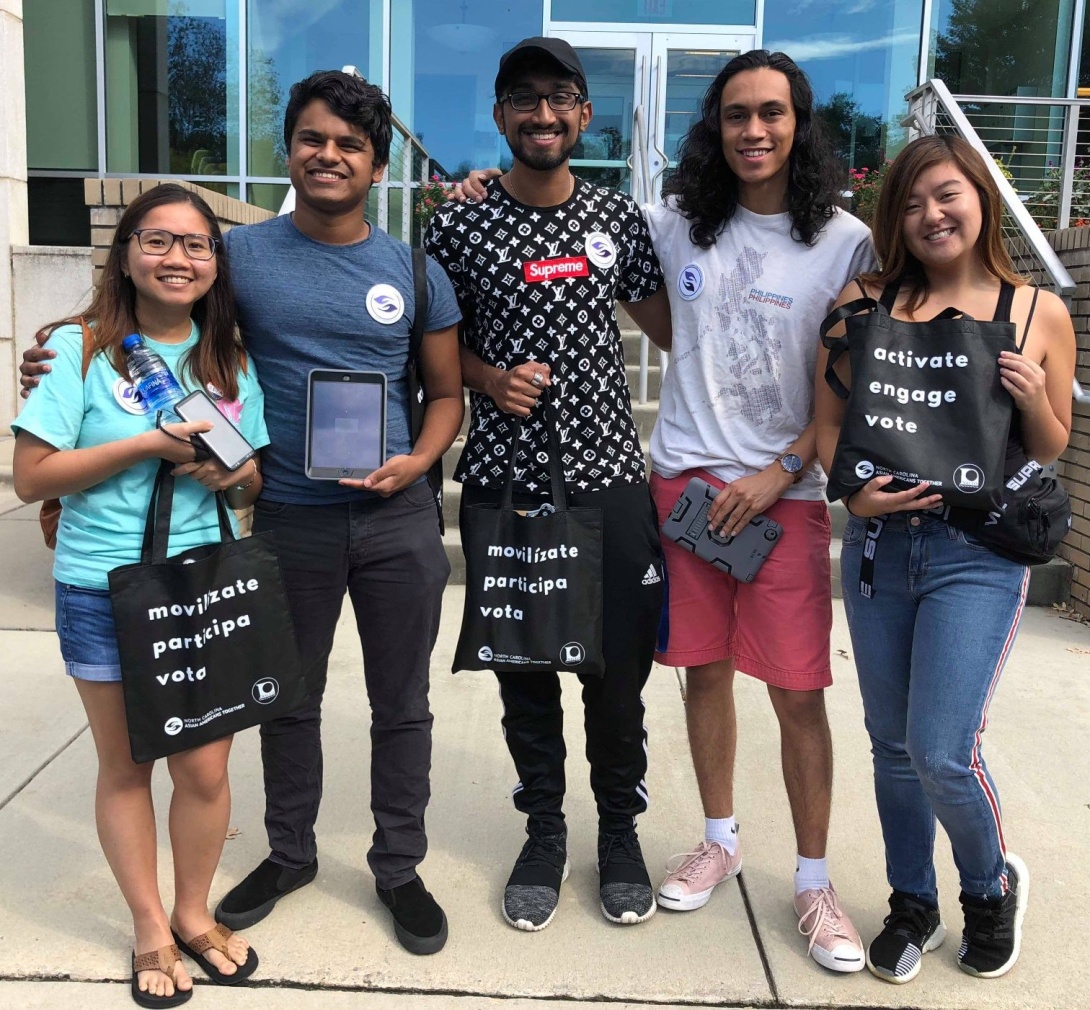Energized Asian-American voters could play key role in N.C. elections

Student volunteers with N.C. Asian Americans Together prepare to canvass in Wake County, an area where Asian-American voters have significantly grown over the last decade. (Photo: David Chang/NCAAT)
As the 2018 election season enters its final weeks, community leaders are mobilizing a key voting demographic that could be pivotal in races across North Carolina: Asian Americans.
Asian Americans are the fastest-growing racial group in the country and the state. The number of Asian-American voters in North Carolina has more than doubled over the last decade, with more than 89,000 registered to vote as of August 2018. As a group that is politically independent, their swing vote could tip the balance in key races and hard-fought ballot measures.
Those are among the findings of "How Asian American Voters are Changing N.C," a new analysis by N.C. Asian Americans Together (NCAAT) and the Institute for Southern Studies, publisher of Facing South.
"Asian American communities are a growing force in North Carolina," said Chavi Khanna Koneru, executive director of NCAAT, a Raleigh nonprofit working to engage Asian-American voters. "At a time when issues affecting immigrants and communities of color are in the national spotlight, it's more important than ever to educate and motivate our families, friends and neighbors."
A key issue in 2018 will be voter turnout. Just 56.5 percent of registered Asian Americans in North Carolina voted in 2016, according to the report. That compares to 69 percent for all voters in the state.
One cause of the lower turnout figures may be that Asian-American communities have often been bypassed by candidates and political parties; 71 percent of Asian American voters nationally said they weren't contacted by either major party in 2016. In a national survey conducted from August through early October 2018 by AAPI Data, more than half of Asian-American voters reported they had yet to be contacted by a political party or civic group about the upcoming elections.
Energized and politically independent
Despite the relative dearth of outreach in their communities, Asian-American voters appear to be energized for the 2018 elections. In AAPI Data's survey, 48 percent of those polled said they were "more enthusiastic about voting this year," compared to only 28 percent in 2014, the last midterm election.
New research also points to the political independence of Asian Americans. In North Carolina, the NCAAT/Institute report found that, as of August 2018, more than half — 52.5 percent — of registered Asian-American voters are independent or unaffiliated.
That's in line with AAPI Data's national survey, which found that Asian-American voters nationally favor the Democrats' position on key issues like the environment, racial discrimination and gun control, but the Republicans' on taxes, the economy and national security.
"Not only is the Asian-American community the fastest-growing racial group in the country," said Karthick Ramakrishnan, founder and director of AAPI Data, "it is a politically dynamic population whose vote still remains up for grabs."
That could make Asian Americans an especially critical swing vote in key North Carolina elections in 2018, including three tight U.S. House races, more than a dozen highly contested seats in the N.C. General Assembly, and statewide campaigns for a N.C. Supreme Court justice and six proposed amendments to the state constitution.
N.C. Asian Americans Together and other groups are working to capitalize on heightened voter interest to boost turnout, especially in areas where Asian-American voters are most heavily concentrated, such as Charlotte, Greensboro, and the Raleigh-Durham Triangle area.
In 2018, NCAAT has registered more than 2,000 voters and hosted three candidate forums in Wake County, which has the state's largest Asian-American community. These are part of what the group calls an "unprecedented" push to educate and mobilize the state's Asian-American electorate in 2018, which over the next 12 days will include an issue forum on the constitutional amendments, phone banking, a door-to-door canvass in Wake County, and a "Party at the Polls" on Election Day.
To read the full report and find out more information, visit ncaatogether.org.
Tags
Chris Kromm
Chris Kromm is executive director of the Institute for Southern Studies and publisher of the Institute's online magazine, Facing South.
